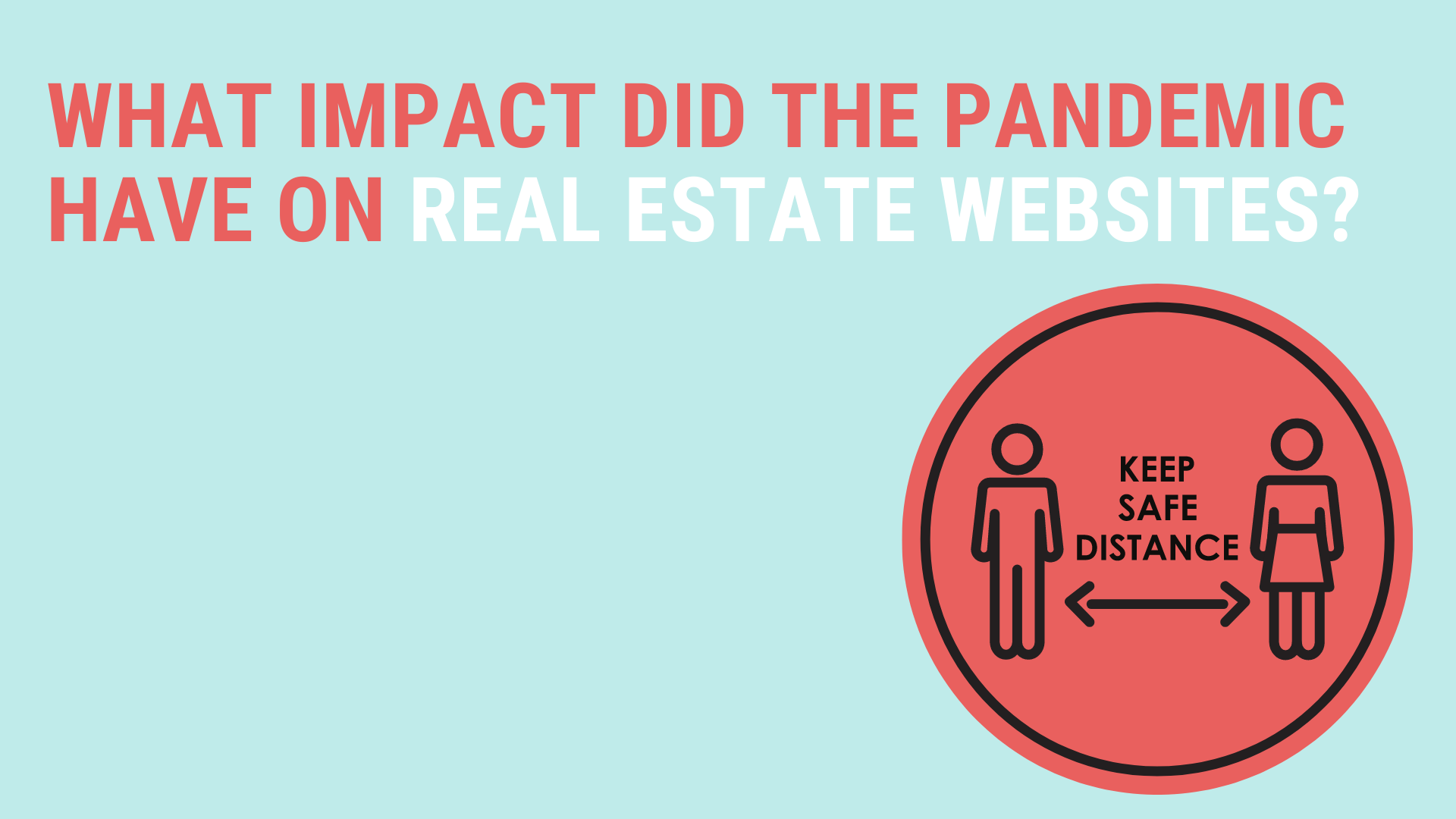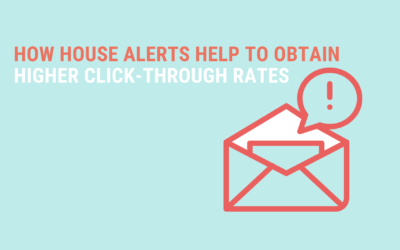What Impact Did the Pandemic Have on Real Estate Websites? Let’s Analyse the Trends
July 6, 2021 | 3 min read

The real estate market has had a whirlwind of a year. In some countries, the sector was essentially ground to a halt, with only essential real estate activity going forward. Other countries had a far less severe attitude to restricting real estate during the pandemic. And of course, we’ve seen dramatic shifts in real estate client preferences across all subsectors, including residential, logistics, office spaces, and more. But in 2021, the property search often starts online, with the thriving real estate websites that have become a staple part of the real estate landscape.
Now over one year on from the start of coronavirus, what does the pandemic real estate sector look like? More specifically, what impact did the pandemic have on real estate websites? To answer this question, let’s take a look at the pandemic real estate trends.
Lockdowns Had a Dramatic Effect on New Property Listings
Faced with an unprecedented pandemic and no blueprint to follow, countries chose to roll out protective measures in different ways. Naturally, these differences dramatically impacted the property markets within those countries and the real estate portals supporting the market. Predictably, the countries with the most severe lockdowns saw the most significant decline in new property listings. For example, in the UK and Italy, which both had some of the most rigorous lockdowns in Europe, the drop in new listings was between 75% and 90%.
By contrast, countries that imposed “intelligent lockdowns,” usually marked by far less stringent restrictions and a more fluid approach to closing down specific sectors, saw far less of an impact. For example, in the Netherlands and Sweden, the markets were barely affected. The Netherlands experienced no significant drop in new listings and even reached annual highs. Further north, Sweden only saw a modest decrease in new listings, with a decline of around 20%.
And naturally, countries that fall somewhere between “intelligent lockdowns” and stringent restrictions saw a moderate impact. In the US, Canada, and Australia, where rules on the real estate market were not overly strict, the decline in new listings was around 40%-50%.

Impact on Portal Traffic
In addition to new property listings, countries with severe lockdowns also saw a dip in portal traffic. However, some countries, like Australia and the US, managed to recover from this dip far quicker than other countries like the UK.
But why? It could be that people in countries with less severe restrictions and a more open real estate market felt more comfortable browsing for properties online. After all, if you know you will be able to buy or sell a property in the near future, you’re far more likely to return to your everyday browsing habits.
By contrast, people in the UK might have seen little point in engaging with the property market at all while it was all but shut down
Consumers Are Defaulting to Established Brands
In the investment world, a flight to safety is a phenomenon where investors shift away from riskier investments and instead favor safer ones. There can be several triggers for a flight to safety, such as economic uncertainty, social unrest, and of course, a global pandemic. More broadly, this phenomenon describes the human instinct to default to things that feel secure and robust when times are tough. But did people start turning to the established real estate brands they trust during the pandemic? In many places, it looks like they did.
Analysis of Google search volumes found that three years ago, “Rightmove” was searched approximately 3.5 times more on average than “Zoopla” in the UK. Rightmove is the UK’s leading real estate website, with Zoopla being its nearest rival. However, as of 2021, “Rightmove” is now being searched around 4 times more than “Zoopla.” A similar trend was seen in Portugal. Before the pandemic, “Idealista” was searched 2.2 times more than its nearest rival, “Fotocasa.” Fast forward to 2021, and “Idealista” now has three times the search volume of “Fotocasa.”
However, consumers didn’t stick with the top-spot brands in every country. For example, some portal brands started to catch up to their dominant rivals in Mexico and Malaysia. Additionally, in some markets, the leading portals were so dominant that the pandemic had almost no impact on their keyword dominance. This was true in the Netherlands with the “Funda” portal, In Ireland with “Daft,” and “Hemnet” in Sweden[3].

Proptech Is Gaining Traction
According to insights from American finance company MSCI, proptech is becoming more commonplace in office real estate management. Significantly, the report highlights the innovative use of data to attract and retain new tenants. For example, companies can now measure productivity at a desk level or recommend data-driven ways to optimize workspaces. This is all data that real estate portals can leverage when showcasing the value of properties on their websites.
Additionally, we’re now seeing increased use of technology in the home buying process. For example, in the UK, where the housing market was all but shut down due to strict lockdowns, physically viewing properties was impossible. However, real estate websites quickly adapted by offering virtual viewings. While virtual viewings were available on some listings before the pandemic, it was much less widespread. The same is also true for other introductions of technology, like digital signing and e-conveyancing.
Despite lockdowns easing and the world starting to return to normal in many ways, this new era of technology-infused real estate is here to stay. Website users have now experienced these features and are unlikely to give them up.
Reassessing Priorities and Meeting Client Expectations
A survey of potential buyers and sellers by UK-based global real estate company Savills found that the COVID-19 pandemic has significantly increased demand for rural properties. Faced with the prospect of working from home on a more regular basis, real estate consumers are increasingly looking for properties that fit in with their new lifestyle. This means more green spaces where they enjoy leisure time outside of working hours. It appears that prime urban properties are out, and quaint countryside properties are in, at least in the UK.
If we believe that remote working will become a more permanent feature in our lives, real estate portals will have to adapt to this trend. This could mean prioritizing property listings with greener spaces and dedicated home offices.

Want to get more high-quality contact requests? Get our ebook now, learn how industry leaders and e-commerce are using data & personalization to gain more relevant leads.
How House Alerts Help To Obtain Higher Click-Through Rates
Thanks to house alert systems, you can quickly inform potential buyers when new properties that match their criteria show up. Here is a step-by-step guide that will show you how you can retarget potential customers and help them find the house of their dreams.
Two Unique Dashboards That Will Help Your Real Estate Agents Close More Deals
Being successful in sales is about knowing your product inside out and knowing everything there is to know about your customer. Luckily, it’s easier to achieve these two goals today than ever before by using some unique dashboards. Read everything about it here:
How Artificial Intelligence is Shaping the Online Real Estate Market
Now in 2021, the message is clear; AI is here, and it’s here to stay. But what impact does this technology have on the real estate market? Read everything about it in this article



